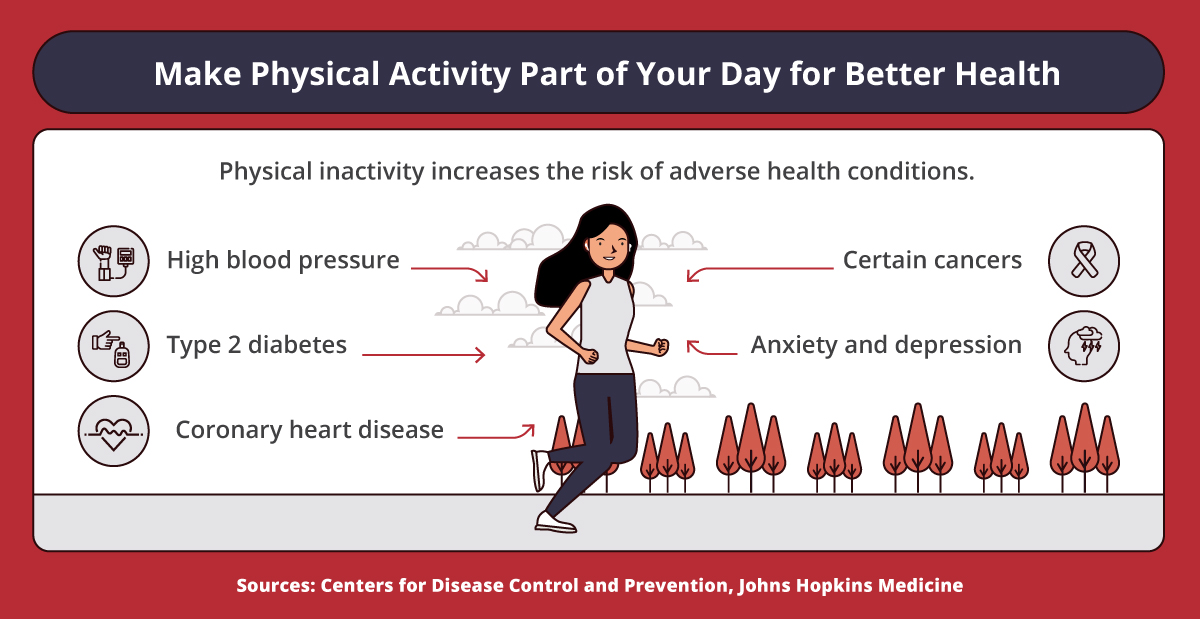Medical Billing and Coding Essentials
Discover the importance of Medical Billing and Coding Essentials. Learn about billing and coding in healthcare

In today's complex healthcare landscape, medical billing and coding play a crucial role in ensuring the smooth functioning of healthcare facilities and the accurate processing of medical claims. This article will delve into the essentials of medical billing and coding, shedding light on what these processes entail, their significance, and the key principles involved.
Understanding Medical Billing and Coding
Medical billing and coding are integral components of the healthcare revenue cycle. Medical coding involves translating medical diagnoses and procedures into universal alphanumeric codes. These codes ensure that healthcare services are accurately documented and billed. Medical billing, on the other hand, involves submitting and following up on claims with health insurance companies to receive payments for services rendered.
The Importance of Accuracy
Accurate medical billing and coding are vital for several reasons. First and foremost, they prevent healthcare providers from facing legal issues and financial losses due to incorrect billing. Additionally, accurate coding ensures that patients receive the appropriate care based on their medical history and conditions.
The Role of Medical Billers and Coders
Medical billers and coders are responsible for maintaining the financial health of healthcare organizations. Coders review patient records and assign the appropriate codes, while billers use these codes to prepare claims for submission to insurance companies. These professionals also verify insurance coverage and work to resolve any discrepancies.
Key Terminologies in Medical Billing and Coding
To navigate the world of medical billing and coding, one must understand key terms such as "EOB" (Explanation of Benefits), "Deductible," "Co-payment," and "Denial." Familiarity with these terms is essential for effective communication within the healthcare industry.
ICD-10 Codes: The Backbone of Coding
The International Classification of Diseases, 10th Edition (ICD-10), is the cornerstone of medical coding. These codes encompass a vast range of diseases, conditions, and procedures, allowing for precise documentation of patient encounters.
CPT Codes: Procedural Coding
Current Procedural Terminology (CPT) codes detail medical procedures and services. These codes ensure that healthcare providers are compensated accurately for the specific services they offer.
The Claims Process
Submitting claims to insurance companies involves a series of steps, including data entry, verification, and transmission. Understanding this process is essential for medical billers to ensure timely reimbursement.
Compliance and Regulations
The healthcare industry is subject to numerous regulations, such as the Health Insurance Portability and Accountability Act (HIPAA). Medical billers and coders must adhere to these regulations to protect patient privacy and maintain legal compliance.
Electronic Health Records (EHR) Integration
The integration of electronic health records streamlines the billing and coding process. EHR systems allow for real-time documentation, reducing errors and improving efficiency.
Medical Billing Software
Many healthcare organizations rely on specialized software for medical billing and coding. These tools help automate processes and reduce the risk of human error.
Challenges in Medical Billing and Coding
Despite the importance of their roles, medical billers and coders face challenges such as changing regulations, insurance complexities, and the need for ongoing education.
Career Opportunities
The field of medical billing and coding offers a range of career opportunities, including medical coding specialist, medical billing specialist, and medical records technician.
Continuous Learning in the Field
Medical billing and coding are dynamic fields, and professionals must stay updated with the latest coding changes and healthcare regulations through continuous education.
Tips for Choosing a Medical Billing and Coding Program
Aspiring medical billers and coders should carefully select accredited programs that provide comprehensive training and hands-on experience.
In conclusion, medical billing and coding are essential components of the healthcare industry, ensuring accurate billing, compliance with regulations, and timely reimbursement. Professionals in this field play a critical role in maintaining the financial health of healthcare organizations and the delivery of quality patient care.
What are the primary responsibilities of medical billers and coders?
Medical billers and coders hold crucial roles in healthcare organizations. Their primary responsibilities include:
- Medical Coding: Coders review patients' medical records and translate diagnoses, procedures, and services into alphanumeric codes. This step is vital for accurate billing and insurance claims.
- Claim Preparation: Medical billers use the coded information to create claims for submission to insurance companies or government healthcare programs. This process involves ensuring all necessary documentation is attached and verifying insurance coverage.
- Claim Submission: Once the claims are prepared, they must be submitted to the appropriate payer, whether it's a private insurance company or a government entity like Medicare or Medicaid.
- Follow-Up: Billers are responsible for tracking submitted claims, monitoring their status, and addressing any issues that may arise during the adjudication process. This may involve communicating with insurance companies, patients, or healthcare providers.
- Reimbursement: Billers work tirelessly to ensure healthcare providers receive timely and accurate reimbursement for their services. This involves verifying that the payer has processed the claim correctly and that payments are made according to the agreed-upon rates.
- Compliance: Compliance with healthcare regulations, particularly the Health Insurance Portability and Accountability Act (HIPAA), is paramount. Medical billers and coders must ensure patient privacy and data security at all times.
How do ICD-10 and CPT codes differ?
ICD-10 and CPT codes serve distinct purposes in the world of medical billing and coding:
- ICD-10 Codes (International Classification of Diseases, 10th Edition): These codes primarily describe diagnoses and medical conditions. They provide a standardized way to categorize and record illnesses, injuries, and health-related issues. ICD-10 codes are essential for documenting a patient's medical history and determining the medical necessity of procedures.
- CPT Codes (Current Procedural Terminology): CPT codes focus on medical procedures and services. They detail the specific actions taken during a patient's treatment, such as surgeries, examinations, and therapies. CPT codes help healthcare providers and insurers understand the nature and complexity of the services rendered.
In essence, ICD-10 codes tell us what's wrong with the patient, while CPT codes tell us what was done to address the issue.
What is the significance of electronic health records (EHR) in medical billing and coding?
Electronic Health Records (EHRs) have revolutionized the way medical billing and coding are performed. Their significance lies in:
- Real-time Documentation: EHRs allow healthcare providers to document patient encounters in real time. This immediate documentation ensures that coders have access to the most up-to-date information when assigning codes, reducing errors.
- Efficiency: EHRs streamline the billing and coding process by automating many tasks. This efficiency translates to faster claims submission, reduced administrative burden, and quicker reimbursements.
- Data Accuracy: EHRs help maintain data accuracy. They can catch potential coding errors and alert coders and billers to discrepancies before claims are submitted.
- Data Accessibility: Authorized personnel can access EHRs from anywhere, improving communication and collaboration among healthcare teams.
In summary, EHR integration enhances the accuracy, efficiency, and accessibility of medical billing and coding processes.
What challenges do professionals in the field of medical billing and coding face?
Professionals in this field encounter several challenges, including:
- Ever-changing Regulations: Healthcare regulations, including coding and billing guidelines, frequently evolve. Staying updated is essential to ensure compliance.
- Insurance Complexities: Dealing with various insurance plans, each with its own rules and requirements, can be intricate and time-consuming.
- Technological Advancements: While technology improves efficiency, it also means professionals must adapt to new software and tools regularly.
- Data Security: Protecting sensitive patient information is a top priority, and data breaches can have severe consequences.
- Ongoing Education: Continuous learning is vital to keep up with coding changes and industry best practices.
How can I pursue a career in medical billing and coding?
To embark on a career in medical billing and coding, follow these steps:
- Education: Enroll in a reputable medical billing and coding program or obtain a related degree. Look for programs accredited by organizations like the American Health Information Management Association (AHIMA) or the American Academy of Professional Coders (AAPC).
- Certification: Consider obtaining industry certifications, such as Certified Professional Coder (CPC) or Certified Coding Specialist (CCS). These credentials demonstrate your expertise to potential employers.
- Practical Experience: Seek internships or entry-level positions to gain practical experience and develop your skills.
- Stay Updated: Continuously update your knowledge by attending workshops, seminars, and staying informed about coding changes and healthcare regulations.
- Network: Build a professional network within the healthcare industry. Networking can help you discover job opportunities and gain insights from experienced professionals..
The Importance of Accuracy
Accurate medical billing and coding are essential not only for healthcare providers but also for patients. Inaccuracies in coding can lead to incorrect billing, which can result in financial burdens for patients. Moreover, precise coding ensures that patients receive the appropriate care and treatment based on their medical history and conditions. This accuracy contributes to the overall quality of healthcare and patient satisfaction.
The Claims Process
The claims process in medical billing is a multi-step procedure that requires attention to detail and precision. Once a medical biller has prepared the claim with the correct codes, it is submitted to the insurance company or payer for processing. During this phase, the insurance company reviews the claim for accuracy and determines whether it should be approved or denied.
In the event of a denial, medical billers play a crucial role in investigating the reasons for the denial, resolving any issues, and resubmitting the claim. This process can be time-consuming, but it is essential to ensure that healthcare providers receive the reimbursement they deserve for their services.
Compliance and Regulations
Compliance with healthcare regulations is a top priority in medical billing and coding. The Health Insurance Portability and Accountability Act (HIPAA) sets strict standards for patient data privacy and security. Billers and coders must adhere to these regulations to protect patient information and maintain legal compliance.
Additionally, healthcare billing and coding professionals must stay informed about other industry-specific regulations and guidelines. This includes staying up-to-date with changes in coding systems and billing procedures to ensure that they are accurately and ethically documenting patient information.
Challenges in Medical Billing and Coding (Continued)
The challenges faced by professionals in the field of medical billing and coding are multifaceted and can evolve over time. Some additional challenges include:
- Audit Risk: Healthcare providers and organizations can be subject to audits by insurance companies or government agencies to ensure compliance. Billers and coders must maintain meticulous records to navigate these audits successfully.
- Denied Claims: Dealing with denied claims can be frustrating and time-consuming. Billers must be persistent and detail-oriented to resolve issues and secure rightful reimbursements.
- Coding Accuracy: Accurate coding is a constant challenge due to the complexity and specificity of medical procedures and diagnoses. Staying current with coding changes is essential to avoid errors.
- Insurance Verification: Verifying insurance coverage for patients can be a time-intensive process, especially with the variety of insurance plans available.
- Communication: Effective communication with healthcare providers, insurance companies, and patients is essential to clarify billing details and resolve issues.
Career Opportunities
The field of medical billing and coding offers a wide range of career opportunities, making it an attractive choice for those interested in the healthcare industry. Some additional roles include:
- Medical Records Technician: These professionals focus on managing and maintaining patient health records, ensuring they are complete and accurate.
- Medical Claims Analyst: Analysts review and analyze insurance claims for accuracy and compliance with regulations.
- Billing Office Manager: Managers oversee billing departments, ensuring that billing and coding operations run smoothly.
- Health Information Manager: These professionals are responsible for the overall management of healthcare data, including electronic health records (EHR) systems.
- Medical Compliance Officer: Compliance officers ensure that healthcare facilities and professionals adhere to all applicable laws and regulations.
In conclusion, a career in medical billing and coding offers not only job security but also the opportunity to contribute to the efficient operation of healthcare facilities and the well-being of patients. It demands continuous learning, attention to detail, and a commitment to ethical and accurate documentation. Professionals in this field are essential in maintaining the financial health of healthcare organizations and ensuring that patients receive the care they need.
If you're considering a career in medical billing and coding, it's crucial to invest in education and certification, stay informed about industry changes, and develop excellent communication skills. This will enable you to embark on a rewarding and impactful career in the healthcare industry.
What's Your Reaction?

















